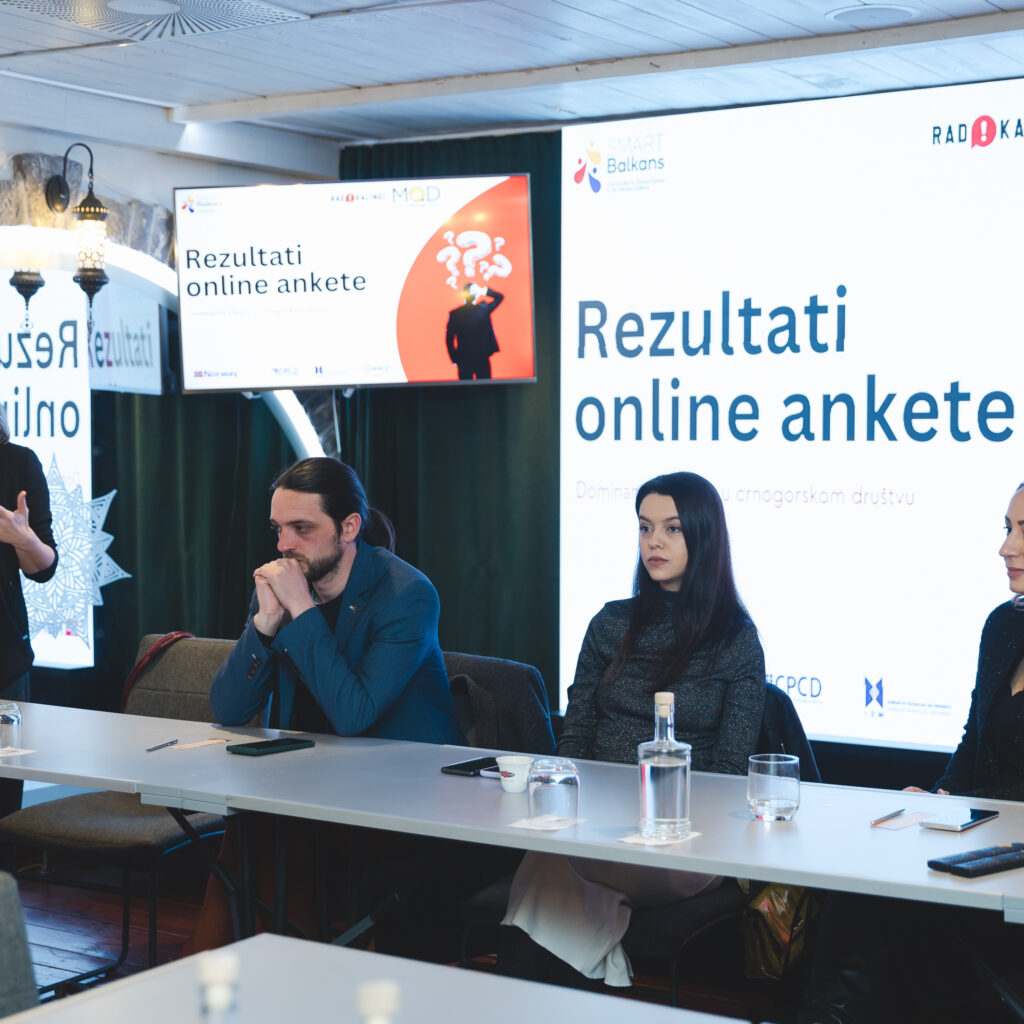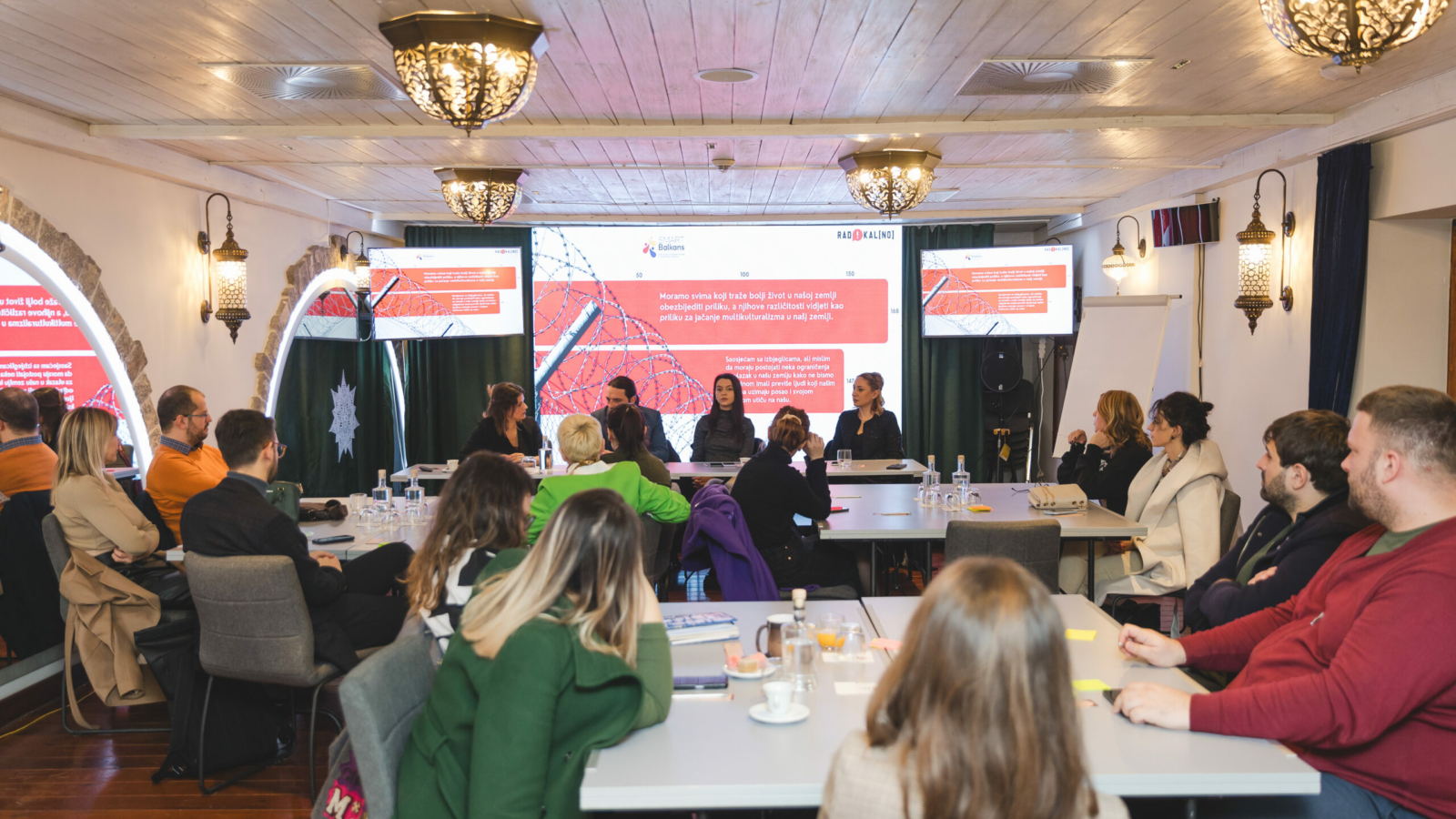Nearly 97% of respondents in an online survey conducted by the Open Dialogue Network (ODN) believe that there are clear divisions in Montenegrin society concerning economic status. Political affiliation is considered a key factor in societal divisions by 73% of the respondents. Additionally, collected data illustrate deeply rooted norms and beliefs in Montenegrin society: almost 20% of those surveyed believe that marriage should not be contracted with someone who does not share the same religion or culture. This indicates the presence of traditional beliefs regarding the importance of shared cultural foundations in relationships. Nearly 40% of respondents do not support same-sex marriages, viewing marriage exclusively as a union between a man and a woman, confirming a traditional understanding of partnership.
These pieces of information are part of an online research effort conducted by the Open Dialogue Network (ODN) within the framework of the RADIKAL(NO) project, aimed at advancing the prevention of radicalization in Montenegrin society and informing about negative societal changes on local level, primarily in the digital sphere. The project is supported through the SMART Balkans regional program.

Data gathered through the research represents a crucial component when it comes to utilising societal mechanisms to counter retrogressive phenomena and radicalization in Montenegro.
Through the online survey, ODN sought to explore prevalent attitudes in our society, posing questions about the society we aspire to and the one we aim to form. We analyzed the boundaries of tolerance toward various societal actors, particularly sensitive groups, exploring what the community supports and what it does not. We also investigated how informed citizens are and their awareness of different positive and negative phenomena present in our society.
These data indicate an increased awareness among citizens about the societal divide in different spheres, which can serve as a basis for developing strategies aimed at overcoming these divisions and constructing a more inclusive society.
Furthermore, the collected data illustrate deeply ingrained norms and beliefs in Montenegrin society: almost 20% of those surveyed believe that marriage should not be contracted with someone who does not share the same religion or culture. This points to the presence of traditional beliefs about the importance of shared cultural foundations in relationships. Almost 40% of respondents do not support same-sex marriages, viewing marriage exclusively as a union between a man and a woman. On the other hand, over 80% of respondents believe that society cannot progress without equal respect for the rights of all citizens. This data represents an interesting contrasting point compared to the previously highlighted data regarding attitudes towards marriage, religious and cultural differences, and same-sex marriages. This data suggests the existence of deep societal nuances and complexities in the perception of societal progress.
On one hand, there’s a pronounced awareness of divisions, both in economic status and in issues related to marriage and sexual orientation. On the other hand, the majority of respondents emphasize the importance of equal respect for the rights of all citizens for societal progress. Such a result suggests the complexity of societal attitudes and the necessity of continuous dialogue to overcome contradictions and achieve comprehensive societal progress.
In the context of these results, ODN calls for a collective contribution to building a society based on truth, transparency, and mutual respect. Open dialogue represents a key component in achieving a sustainable future for all citizens of Montenegro, and ODN calls for active participation and support in realizing this goal.
Research results in Montenegrin are available HERE.












